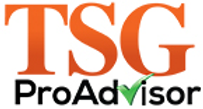Developing a culture of learning is crucial to building a successful tax firm. The foundation of this culture starts with hiring the right people. Technical skills can be taught easily, indeed. But when it comes to working well with others, a strong work ethic is an essential trait that cannot be easily instilled. Therefore, every tax firm should prioritize developing a culture of learning environment. Particularly for soft skills, personality traits, and social intelligence during the hiring process.
When new team members are hired, management is responsible for providing comprehensive training in different sectors of the tax firm. It’s obvious new employees (fresh graduates) have theoretical tax knowledge but limited knowledge of practical tax law and procedure. Creating a continuous learning environment approach ensures all team members receive the necessary education and support. This approach can be starting from the basics if needed.
The Importance of a Learning Culture in Tax Firms
A learning culture in a firm means developing a learning environment where all the team members can access a continuous development of education and professionalism. This approach emphasized the importance of staying up to date with the latest tax laws, regulations, and best industrial practices. It encourages every employee to engage in ongoing learning through different strategies. For instance, workshops, seminars, online courses, and peer-to-peer learning.
This continued education benefits employees and tax firms in many ways-
- Employees who have access to continuous learning opportunities feel more valued and supported, which leads to higher job satisfaction.
- Firms that invest in their employees’ education tend to have lower turnover rates.
- Continuous education helps employees stay proficient in their roles, which boosts their confidence and performance.
- Well-trained employees are better equipped to handle complex tax issues and provide accurate advice to clients.
- A strong learning culture makes a firm more attractive to potential hires.
- Talented professionals are drawn to organizations that prioritize their development and offer opportunities for career advancement.
Leadership Commitment to Learning
Leadership plays a crucial role in establishing a learning culture within a tax firm. When leaders prioritize and actively engage in continuous learning, they set a powerful example for the entire team. This commitment signals to employees that professional development is valued and essential for the firm’s success.
 Let’s have some examples of how leaders can model learning behavior.
Let’s have some examples of how leaders can model learning behavior.
- Participate in training alongside their team members to demonstrate a commitment to personal growth and encourage others to follow suit.
- Regularly sharing insights from recent learning experiences (e.g., new tax regulations or industry trends) can foster a knowledge-sharing environment.
Encouraging Open Communication
Effective open communication is a crucial skill in any profession, but it holds particular significance in the tax field. This approach ensures that information flows freely and transparently at all levels. It develops trust and collaboration. When employees feel comfortable sharing their ideas, concerns, and feedback, it fosters an environment where continuous learning and improvement are possible.
To create safe spaces for idea sharing and feedback you can follow different strategies. For instance, an open-door policy where every team member is accessible for discussions and feedback at any time. Also, regular team meetings, anonymous feedback channels, active listening training, and constructive feedback provide and receive training.
Providing Access to Learning Resources
We have listed some essential tax learning resources for continuous education, such as:
- Online courses and certifications
- Coursera: Offers a wide range of accounting and tax courses from top universities and institutions. Cover topics like financial accounting, tax preparation, and auditing. Provide certifications upon completion.
- H&R Block: Offers comprehensive tax preparation courses that include hands-on experience and certification opportunities.
- Intuit Accountants: Provides a variety of self-paced training, webinars, and articles specifically designed for tax professionals.
- Industry publications and journals
- Journal of Accountancy: A leading publication that provides in-depth articles on accounting, tax, and financial reporting.
- The CPA Journal: Covers a broad spectrum of topics relevant to accounting professionals, including tax, auditing, and financial planning.
- Tax Journals: Published by the American Accounting Association. Offer comprehensive research and updated insights into various aspects of taxation.
- NATP Publications: The National Association of Tax Professionals (NATP) offers a variety of publications. Provide in-depth insights into tax laws, regulations, and best practices.
Establishing Mentorship and Peer Learning Programs
 Mentorship is the most beneficial strategy for knowledge transfer within tax firms. Experienced mentors provide guidance, support, and insights that help less experienced employees navigate complex tax regulations and industry practices. Mentorship in accounting fosters professional growth and ensures that valuable institutional knowledge is passed down effectively.
Mentorship is the most beneficial strategy for knowledge transfer within tax firms. Experienced mentors provide guidance, support, and insights that help less experienced employees navigate complex tax regulations and industry practices. Mentorship in accounting fosters professional growth and ensures that valuable institutional knowledge is passed down effectively.
Peer learning initiatives are study groups or collaborative projects that allow employees to learn from each other. It helps in developing critical thinking and problem-solving skills. Employees are likely to work together, share knowledge, and support each other.
Peer learning in tax firms can help identify best practices and innovative solutions to common challenges. Keeps the team updated with the latest industry trends and improves the firm’s adaptability.
Integrating Learning into Daily Operations
There are some practical ways to incorporate learning into the workday. Here they are:
- Scheduled learning sessions
- Dedicated Time Slots: Allocate specific times during the week for learning activities. For example, set aside an hour every Friday afternoon for team members to engage in online courses or attend webinars.
- Micro-Learning Modules: Implement short, focused learning sessions that fit into the daily schedule. These can be 10-15 minute sessions on specific topics relevant to current projects.
- Knowledge-sharing meetings
- Weekly Knowledge Exchanges: Hold regular meetings where team members can share insights from recent training, industry news, or best practices. This encourages continuous learning and keeps everyone updated.
- Lunch and Learn Sessions: Organize informal sessions during lunch breaks where employees can present on topics they are passionate about or have recently learned about. This fosters a collaborative learning environment.
Recognizing and Rewarding Learning Efforts
To acknowledge employees’ learning achievements, you can follow a few strategies.
- Celebrate learning achievements during team meetings or through company-wide emails.
- Award certificates or digital badges for completing courses or achieving certifications.
- Offer bonuses, gift cards, or other financial incentives for significant learning milestones.
- Link learning achievements to career progression opportunities. Employees who engage in continuous learning should be considered for promotions and leadership roles.
Incentives drive motivation by providing clear rewards for effort and achievement. This encourages employees to engage in learning activities and strive for excellence. Rewarding learning in firms can encourage employees to stay with the firm for a long time. Recognizing employees in tax practices shows that we value their hard work. This appreciation helps create a motivating work environment.
Utilizing Technology for Learning
Technology in tax education helps provide flexible, accessible, and efficient ways for employees to engage in continuous education. Advanced tools and platforms enable real-time updates on tax laws, interactive learning experiences, and seamless collaboration among team members.
The best e-learning platforms for accounting professionals are Coursera, Intuit Academy, AICPA & CIMA Virtual Learning Solutions. However, there are some most recommended tools for managing and enhancing the efficiency of tax practices, such as Karbon, Drake Tax, etc.
Evaluating the Effectiveness of Learning Initiatives
 One of the best methods to evaluate the success of learning programs is the Kirkpatrick model. It has 4 levels:
One of the best methods to evaluate the success of learning programs is the Kirkpatrick model. It has 4 levels:
- Reaction: Measure participants’ immediate reactions to the training. This can be done through surveys or feedback forms to gauge their satisfaction and engagement.
- Learning: Assess the increase in knowledge or skills through pre- and post-training tests or quizzes.
- Behavior: Observe changes in job performance and behavior over time to see if employees are applying what they learned.
- Results: Evaluate the overall impact on business outcomes, such as improved productivity, reduced errors, or increased client satisfaction.
After this, calculate the financial return on training investments. For that, compare the costs of training programs to the financial benefits gained, such as increased revenue or cost savings.
For measuring learning effectiveness in firms, you need to gather feedback and adapt strategies accordingly. Here’s how-
- Collect detailed feedback on training content, delivery, and applicability to identify areas for improvement.
- Gain deeper insights into learning experiences and gather qualitative data through focus groups or one-on-one interviews.
- Track key performance indicators (KPIs) like completion rates, assessment scores, and job performance improvements.
- Implement ongoing feedback systems and regular check-ins to monitor and adjust learning initiatives effectively.
Conclusion
When you are investing in a culture of learning within your tax firm, you are investing in your future. Continuous education through workshops, certifications, or staying updated with the latest tax regulations significantly enhances job security and professional growth. In an industry that is constantly evolving, staying stagnant is not an option. It is crucial to remain informed and capable of serving your clients effectively.
If you prioritize ongoing education, you are not only improving your skill set. But also positioning yourself as a leader in the field, ready to tackle any challenge. With TSG Pro Advisors by your side, you can confidently navigate the complexities of tax preparation and emerge as a trusted advisor for your clients—today and into the future.


